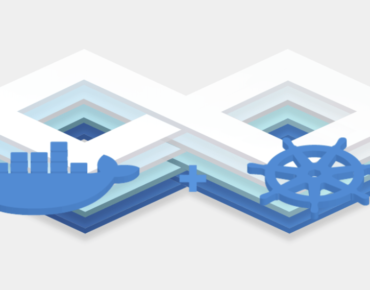Docker Tightens Embrace of Kubernetes

The latest enterprise version of the Docker software container platform is aimed at delivering cloud-native applications from hybrid cloud deployments out to emerging network edge devices.
The container pioneer announced general availability of Docker Enterprise 3.0 on Monday (July 22). The new version also strengthens the application platform’s links to the de facto standard Kubernetes cluster orchestrator.
Docker said the new version acknowledges the “inherent complexity” associated with Kubernetes adoption, including improved management of configurations required to deploy production-grade software. The Docker Kubernetes Service also strengthens container security, which has been an ongoing concern among Kubernetes users.
Docker claims its Kubernetes distribution is the first to integrate the cluster orchestrator from developer desktops to production servers.
The new enterprise platform also includes upgrades designed to automate deployment of containers running on Kubernetes. “One of the most common requests we’ve heard from customers has been to make it easier to deploy and manage their container environments,” Docker said in a blog post announcing the 3.0 release.
The “lifecycle automation tools” target the first days of application deployment on preferred infrastructure. A new set of commands are designed to allow users to deploy and scale clusters across hybrid and multi-cloud deployments on Amazon Web Services (NASDAQ: AMZN), Microsoft Azure (NASDAQ: MSFT) and VMware (NYSE: VMW).
The new version also seeks to help harried developers with a new tool designed to accelerate application deployment. The developer tool based on the CNAB standard for packaging distributed, cloud-native applications represents what Docker calls a new application format. The intent is to allow developers to bundle distributed resources into a single object that can be shared and run ubiquitously.
Docker said more than 2,000 users participated in a public beta program prior to release of Docker Enterprise 3.0. A demo is available here.
The Docker upgrades reflect similar security and stability improvements integrated into recent production version of Kubernetes. A version of the container orchestrator released last fall included stability features along with greater security for application containers running on Microsoft Azure. The update also addressed software bugs encountered by enterprise users rapidly shift containers to production.
Other infrastructure vendors also have released tools designed to ease the roll out of cloud-native applications. For example, IBM (NYSE: IBM) released a package of tools last year that among other things manages container lifecycles to better gauge microservices performance and spot potential security risks when running on Kubernetes or other cloud management frameworks.
Related
George Leopold has written about science and technology for more than 30 years, focusing on electronics and aerospace technology. He previously served as executive editor of Electronic Engineering Times. Leopold is the author of "Calculated Risk: The Supersonic Life and Times of Gus Grissom" (Purdue University Press, 2016).










